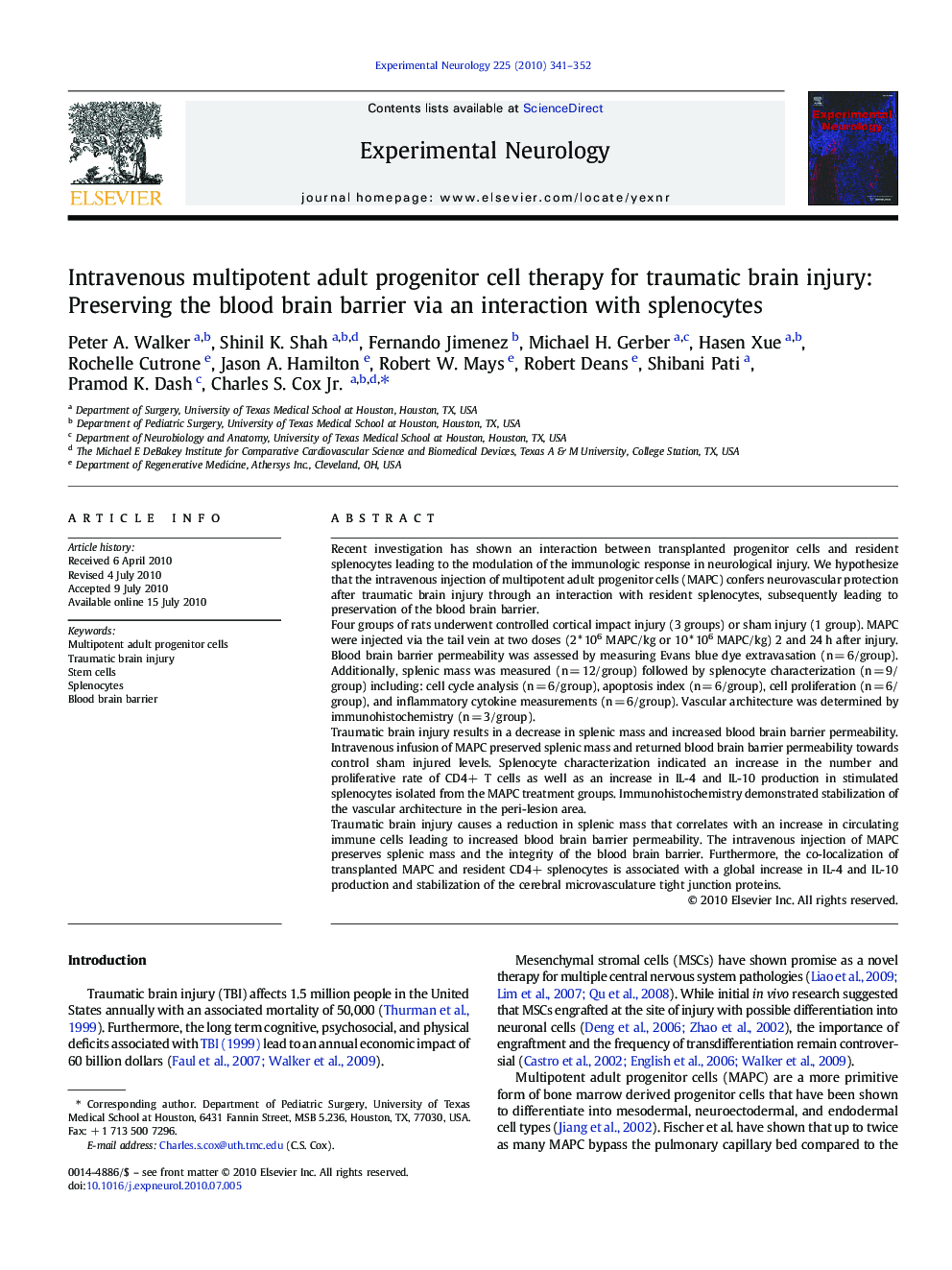| کد مقاله | کد نشریه | سال انتشار | مقاله انگلیسی | نسخه تمام متن |
|---|---|---|---|---|
| 3055993 | 1186549 | 2010 | 12 صفحه PDF | دانلود رایگان |

Recent investigation has shown an interaction between transplanted progenitor cells and resident splenocytes leading to the modulation of the immunologic response in neurological injury. We hypothesize that the intravenous injection of multipotent adult progenitor cells (MAPC) confers neurovascular protection after traumatic brain injury through an interaction with resident splenocytes, subsequently leading to preservation of the blood brain barrier.Four groups of rats underwent controlled cortical impact injury (3 groups) or sham injury (1 group). MAPC were injected via the tail vein at two doses (2 * 106 MAPC/kg or 10 * 106 MAPC/kg) 2 and 24 h after injury. Blood brain barrier permeability was assessed by measuring Evans blue dye extravasation (n = 6/group). Additionally, splenic mass was measured (n = 12/group) followed by splenocyte characterization (n = 9/group) including: cell cycle analysis (n = 6/group), apoptosis index (n = 6/group), cell proliferation (n = 6/group), and inflammatory cytokine measurements (n = 6/group). Vascular architecture was determined by immunohistochemistry (n = 3/group).Traumatic brain injury results in a decrease in splenic mass and increased blood brain barrier permeability. Intravenous infusion of MAPC preserved splenic mass and returned blood brain barrier permeability towards control sham injured levels. Splenocyte characterization indicated an increase in the number and proliferative rate of CD4+ T cells as well as an increase in IL-4 and IL-10 production in stimulated splenocytes isolated from the MAPC treatment groups. Immunohistochemistry demonstrated stabilization of the vascular architecture in the peri-lesion area.Traumatic brain injury causes a reduction in splenic mass that correlates with an increase in circulating immune cells leading to increased blood brain barrier permeability. The intravenous injection of MAPC preserves splenic mass and the integrity of the blood brain barrier. Furthermore, the co-localization of transplanted MAPC and resident CD4+ splenocytes is associated with a global increase in IL-4 and IL-10 production and stabilization of the cerebral microvasculature tight junction proteins.
Research HighlightsFigure optionsDownload as PowerPoint slide
► Traumatic brain injury increases blood brain barrier permeability and decreases splenic mass.
► Intravenous MAPC injection stabilizes the cerebral vasculature architecture.
► MAPC injection preserves the blood brain barrier and restores splenic mass.
► MAPC injection increases splenocyte proliferation with a concordant decrease in apoptosis.
► Splenocyte cultures from treated animals show an increase in CD4+ splenocyte proliferation and an increase in IL-4 and IL-10 production.
Journal: Experimental Neurology - Volume 225, Issue 2, October 2010, Pages 341–352